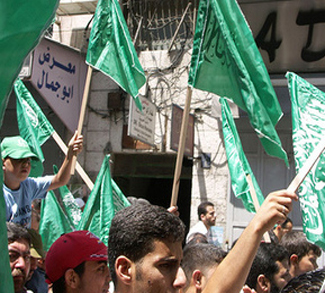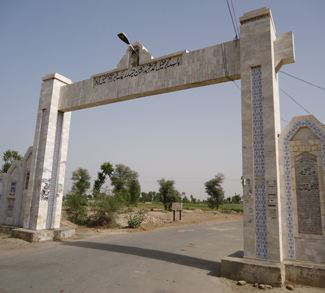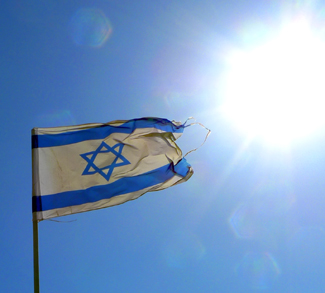FORECAST
Following a series of Israeli air, tank and bulldozer attacks, on January 17 Israel locked down the Gaza strip, preventing people and supplies from entering or exiting the region surrounded by towering walls.
Israel stated that they acted in response to ongoing Palestinian rocket and mortar attacks on Israeli border communities but a broader strategy of division and confinement appears to be at play.
In January 2006 Hamas won the Palestinian Authority elections. Soon thereafter it was forced to form a coalition government with the opposition party Fatah after an anti-Hamas Western led boycott cut off Billions of dollars in aid to the Palestinian Authority.
Israel and its supporters oppose Hamas because of its militant approach and favour Fatah because of its perceived willingness to negotiate and make concessions. Many Palestinians, however, are fed up with Fatah corruption and support the bold stance and progressive social programs promoted by Hamas.
In June 2007 Hamas gained control of The Gaza Strip when it overran Fatah controlled security installations after Fatah refused to cede control to the new government. In response Fatah ousted elected Hamas officials in the West Bank and replaced them with Fatah members. Hamas now controls the Gaza Strip while Fatah controls the West Bank.
This political division is reflective of the physical division. Giant walls fence in both The West Bank and the Gaza Strip and transportation between the regions is often restricted.
Israel’s withdrawal from the Gaza Strip in September of 2005, recent lockdown and plans to start reducing electricity appear to be an attempt to reduce its involvement in the Gaza strip, alienate Gaza from the West Bank and pressure Egypt to take on additional responsibilities. Egypt is reluctant to do this out of fear that Islamist factions will spread beyond the Sinai Peninsula inciting instability at home.
A continued reduction of access to food, fuel, medicine, electricity and other essential services by Israel can be expected while the humanitarian crisis worsens and Egypt faces increased pressure to assist. The weakening and division of Palestine is a longer-term project that will in all likelihood continue for many more years.
SUMMARY OF EVENTS: January 21 – January 28, 2008
WORLD
Global stock markets extended their shakeout into a second day Tuesday, plunging amid worries that a possible U.S. recession will cause a worldwide economic slowdown.
NORTH AMERICA
United States
The Federal Reserve, confronted with a global stock sell-off fanned by increased fears of a recession, slashed a key interest rate by three-quarters of a percentage point on Tuesday and indicated further rate cuts were likely.
EASTERN EUROPE
Russia
Over 40 aircraft of Russia’s Air Force will take part in the final stage of a naval exercise in the Atlantic later this month, an aide to the Air Force commander said on Thursday.
Serbia
According to Serbian President Boris Tadic, Serbia will not give up its interests in Kosovo.
THE MIDDLE EAST
Israel
Israel launched an advanced spy satellite Monday that will be able to track events in Iran even at night and in cloudy weather.
Members of the international community condemned Israel’s lockdown of the Gaza Strip.
Tens of thousands of Palestinians poured into Egypt from the Gaza Strip on Wednesday after militants blew up a border wall, and stocked up on food and fuel in short supply because of an Israeli blockade.
Iran
Russia delivered on Tuesday the fifth fuel shipment to the Bushehr nuclear power plant it is building in southern Iran, the country’s mass media said, citing Iranian nuclear officials.
Envoys from the six major powers dealing with the Iranian nuclear issue agreed Thursday to present elements of a third sanctions resolution to the full UN Security Council on Friday.
Qatar
Qatar will cut its national currency ties with the US dollar in response to the USD’s significant decline.
SOUTH ASIA
India
India and France on Friday signed the framework of an accord paving the way for nuclear power cooperation once New Delhi is able to enter the global atomic energy market, French officials said.
AFRICA
Democratic Republic of Congo
The armed groups in eastern Nord-Kivu province of the Democratic Republic of Congo signed a ceasefire deal Wednesday, officials said.
Kenya
Kenya’s feuding leaders on Thursday pledged to seek an end to unrest after a landmark first meeting brought about by former UN chief Kofi Annan, but the opposition later accused the government of undermining the efforts.



